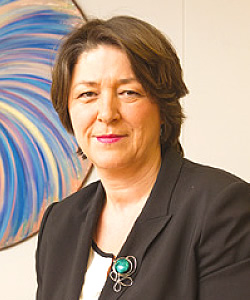 Aviation is a strong driver of growth, jobs, trade and mobility for our economy and citizens. It contributes €110 billion annually to the EU’s Gross Domestic Product, and directly employs 2 million Europeans. However, it also has an increasing impact on the environment. Today aviation represents around 2% of global CO2 emissions and this is expected to increase in the future. According to the International Civil Aviation Organisation (ICAO), emissions will grow by at least 63% by 2020 compared to 2006 levels, and by at least 290% by 2050 if no effective mitigation action is taken. The latest European Aviation Environmental Report also confirmed that the sustainability challenge will increase as the sector continues to grow, despite the technological improvements that are being made.
Aviation is a strong driver of growth, jobs, trade and mobility for our economy and citizens. It contributes €110 billion annually to the EU’s Gross Domestic Product, and directly employs 2 million Europeans. However, it also has an increasing impact on the environment. Today aviation represents around 2% of global CO2 emissions and this is expected to increase in the future. According to the International Civil Aviation Organisation (ICAO), emissions will grow by at least 63% by 2020 compared to 2006 levels, and by at least 290% by 2050 if no effective mitigation action is taken. The latest European Aviation Environmental Report also confirmed that the sustainability challenge will increase as the sector continues to grow, despite the technological improvements that are being made.
The Aviation Strategy for Europe we adopted last December recognises that the future competitiveness of air transport is closely linked to its sustainability. The strategy stresses the importance of decreasing CO2 emissions and the way forward for Europe. First we need to complete the Single European Sky project. This would cut CO2 emissions by an average of 10% per flight within the EU. Then, we have to continue supporting research & development actions for innovative “green” technologies: SESAR for innovative solutions to improve the efficiency of the European Air Traffic Management, and Clean Sky for the development of breakthrough technologies to significantly increase the environmental performance of aircrafts.
Aviation is international by nature, and the decarbonisation efforts must be pursued globally. That is why the EU is coordinating actions with other countries and regions in the world. For instance, the comprehensive aviation agreements, which the Commission negotiates on behalf of the entire European Union, allow us to promote green policies as part of the negotiations. The European Commission has already concluded eight such agreements, seven more are still being negotiated and, as part of the Aviation Strategy for Europe, we want to negotiate new ones with important aviation partners, such as China, Turkey, the Gulf Region, ASEAN, Mexico and Armenia.
However, only through a global and legally-binding agreement can we address the sustainability challenged posed by aviation. Last December in Paris the European Union fought until the last moment to include international aviation in the scope of the COP21 deal. Despite all our efforts this did not succeed, but with 191 Member States, ICAO is now the right forum to make this possible. The EU is currently working closely with ICAO on two global measures: the development of a global CO2 standard for aircraft, and the creation of a Global Market-Based Mechanism (GMBM).
CO2 STANDARD FOR AIRCRAFT
In February, an agreement was reached within ICAO to set the firstever global CO2 standard for aircraft. European experts played a central role in brokering this deal – as had already been the case at the COP21 in Paris. The standard aims at setting the maximum amount of CO2 emissions that commercial aircrafts are allowed to release per kilometre, for both new and in-production aircraft, which will be reviewed over time. By 2040, it could save up to 650 million tons of CO2 emissions. The technical deal now has to be formally endorsed by the ICAO General Assembly this autumn. Once done, this would be an important step towards our sustainability objective. It will also create further momentum for the work on the GMBM.
GLOBAL MARKET-BASED MECHANISM
The objective of the GMBM is to set up a global mandatory system which can offset CO2 emissions from international aviation and enable carbon neutral growth as of 2020. The EU has already put in place a domestic market-based mechanism, the Emissions Trading System. However, a global system is the only way to effectively decarbonise the sector. In 2013, the ICAO Assembly committed to develop a GMBM by 2016. Discussions are ongoing within ICAO and the Commission is pushing for an ambitious outcome at the General Assembly this autumn. Throughout 2016, I will be meeting a number of our key partners to invite them to support us.
As European Transport Commissioner, pushing the EU's decarbonisation agenda forwards is one of my first priorities. Climate change is real, and the decisions we take today are going to impact our generation and the ones to come, in the EU and beyond. Aviation is a global business therefore we need global solutions. I therefore invite all parties to come on-board.